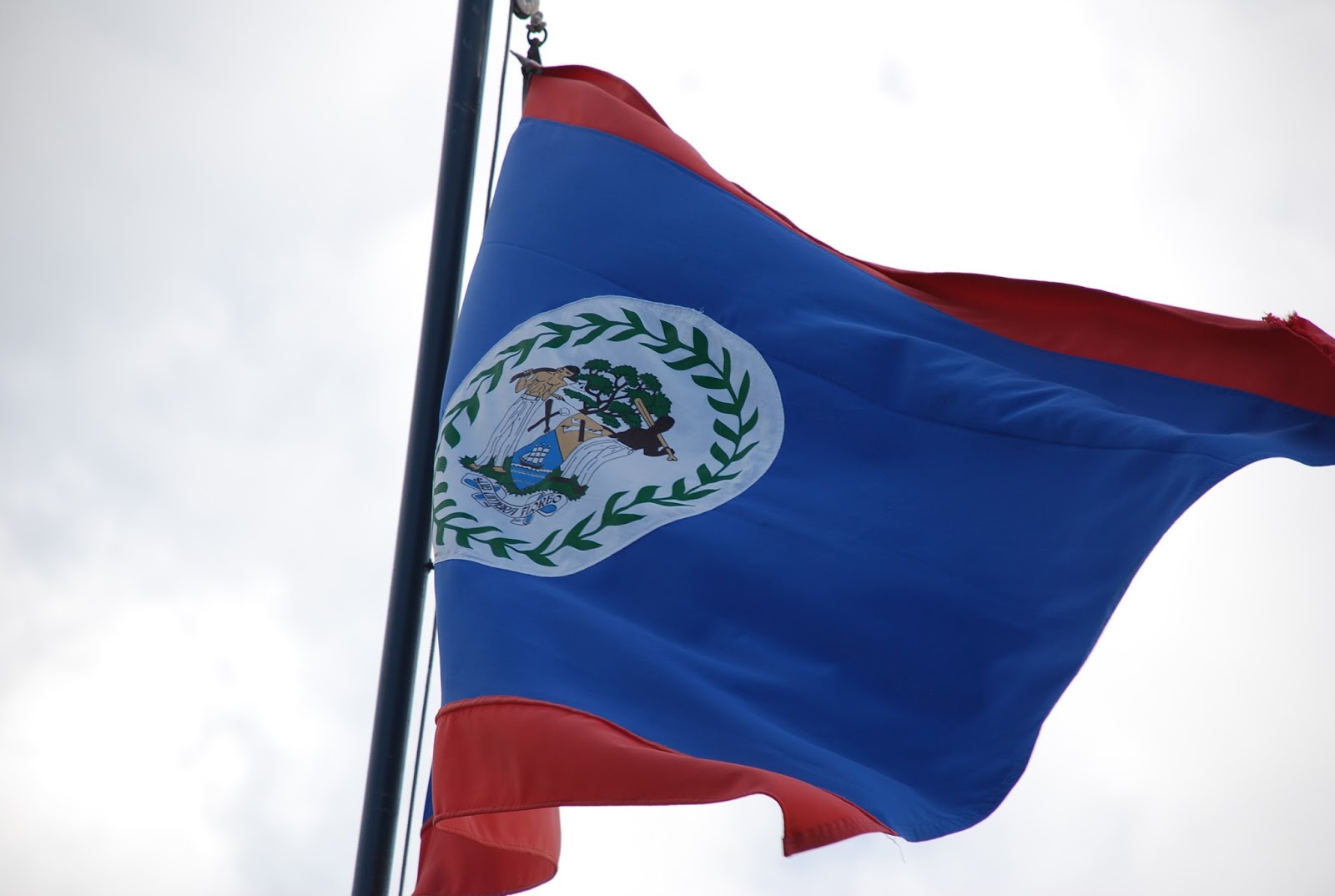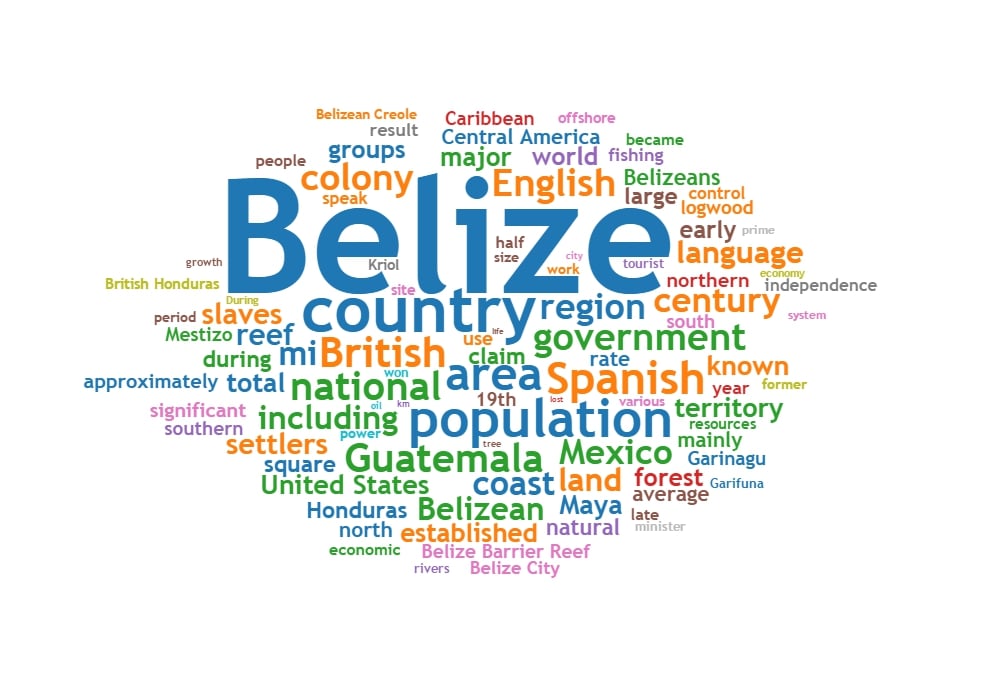Official language belize – The official language of Belize, English, holds a unique place in the nation’s linguistic landscape, shaping its history, culture, and identity. Adopted as the official language due to historical ties, English has become an integral part of Belizean society, influencing education, government, and everyday communication.
This comprehensive overview delves into the historical context, legal framework, sociolinguistic impact, and cultural implications of English as the official language in Belize, exploring its complexities and the fascinating interplay between language and society.
Historical Context of Official Language in Belize
The official language of Belize has evolved over time, reflecting the country’s colonial history and cultural influences. The adoption of English as the official language is a result of British colonization and the country’s subsequent membership in the Commonwealth.
Prior to British colonization, the indigenous Maya peoples spoke various Mayan languages. However, with the arrival of British settlers in the 17th century, English gradually became the dominant language of government, commerce, and education.
British Influence
Belize became a British colony in 1862, and English was officially adopted as the language of government and education. This policy was aimed at assimilating the local population into British culture and society. As a result, English became the primary language of instruction in schools, and it was used in all official documents and communications.
Post-Independence
After Belize gained independence in 1981, English remained the official language. However, the government recognized the importance of preserving the country’s cultural diversity and linguistic heritage. As a result, Spanish, Creole, and Garifuna were also recognized as official languages in the Belizean Constitution.
Today, English remains the dominant language of government, business, and education in Belize. However, the country’s linguistic landscape is diverse, with Spanish, Creole, and Garifuna also being widely spoken.
Legal Framework and Official Language Status
Belize’s legal framework establishes English as the official language, with implications for government, education, and other official domains.
The Constitution of Belize (1981) designates English as the official language, and all laws, records, and proceedings of the National Assembly are conducted in English.
Implications for Government
English is the language of government administration, including laws, regulations, and official documents. All government communications, including announcements, notices, and public hearings, are conducted in English.
Implications for Education
English is the primary language of instruction in schools, from primary to tertiary levels. All textbooks, curriculum materials, and examinations are in English.
Implications for Other Official Domains
English is the official language for all legal proceedings, court documents, and judicial decisions. It is also the language of business, commerce, and media.
Exceptions and Special Provisions, Official language belize
Despite English being the official language, there are exceptions and special provisions for the use of other languages.
- The Garifuna language is recognized as a national language and is taught in some schools.
- Spanish is widely spoken in Belize and is used in some government and educational settings.
- Indigenous Mayan languages are spoken by a significant portion of the population and are used in some community settings.
Sociolinguistic Impact of Official Language

The designation of English as the official language of Belize has had a profound sociolinguistic impact on the use and vitality of other languages spoken in the country. While English serves as the language of government, education, and business, the majority of Belizeans speak a variety of other languages, including Spanish, Kriol, Maya, and Garifuna.
The official language policy has had a significant influence on language use and attitudes in Belize. English is the dominant language in the public sphere, and its use is often seen as a marker of social status and educational attainment.
As a result, many Belizeans have adopted English as their primary language, even if it is not their native tongue.
Challenges and Opportunities
Having an official language that is different from the native languages of many citizens presents both challenges and opportunities. On the one hand, the use of English as the official language can create barriers to communication and participation for those who do not speak it fluently.
On the other hand, it can also provide opportunities for Belizeans to access education, employment, and other resources that are only available in English.
The Belizean government has taken steps to address the challenges posed by the official language policy. These steps include the introduction of bilingual education programs and the provision of language support services for non-English speakers. However, there is still a need for further efforts to ensure that all Belizeans have equal access to the benefits of the official language.
Examples of Influence
- The use of English as the official language has led to the decline of some indigenous languages in Belize. For example, the number of speakers of Maya has decreased significantly in recent years.
- English is the primary language of instruction in schools in Belize, which has led to a decrease in the use of other languages in the classroom.
- The use of English in the media has also contributed to the spread of English throughout Belize. Many Belizeans now watch television programs and read newspapers in English, even if they do not speak it fluently.
Education and Official Language

In Belize, English is the sole official language and is used as the primary medium of instruction in the education system. This policy has significant implications for language learning, literacy, and the overall sociolinguistic landscape of the country.
Advantages of English as the Medium of Instruction
- Access to global knowledge and resources:English is a global language, and using it as the medium of instruction provides students with access to a vast repository of knowledge and resources, including scientific literature, textbooks, and online materials.
- Economic opportunities:Proficiency in English is highly valued in the global job market, and using it as the medium of instruction prepares students for future employment opportunities both within Belize and abroad.
- Cultural exchange and understanding:English is a common language used in international communication, and using it as the medium of instruction fosters cultural exchange and understanding among students from diverse backgrounds.
Disadvantages of English as the Medium of Instruction
- Language barriers for non-native speakers:For students who do not have English as their first language, using it as the medium of instruction can create language barriers and hinder their academic progress.
- Loss of indigenous languages:The exclusive use of English in the education system can lead to a decline in the use and preservation of indigenous languages, which are an important part of Belize’s cultural heritage.
- Educational disparities:Students from disadvantaged backgrounds who may not have access to English language support outside of school may face educational disparities compared to their peers who are native English speakers.
Impact on Language Learning and Literacy
The use of English as the official language in education has a significant impact on language learning and literacy in Belize. While it provides opportunities for students to access global knowledge and prepare for future economic opportunities, it also poses challenges for non-native speakers and can contribute to the loss of indigenous languages.
Therefore, it is crucial to find a balance between promoting English proficiency and preserving the linguistic diversity of the country.
Cultural and Identity Implications

The designation of English as the official language in Belize carries significant cultural and identity implications. It serves as a symbol of the nation’s historical connection to the United Kingdom and its role as a member of the Commonwealth of Nations.
The official language policy can influence the preservation and transmission of Belizean culture in various ways. The use of English in education, government, and media can lead to the dominance of Anglophone culture over other linguistic and cultural traditions in the country.
This can potentially marginalize indigenous languages and cultural practices, making it more challenging for Belizeans to connect with their cultural heritage.
Shaping Belizean Identity
The official language has played a significant role in shaping Belizean identity and national unity. English has become a common language of communication and a symbol of Belize’s diverse population, uniting people from different linguistic and cultural backgrounds.
The use of English in education has contributed to the development of a shared educational system, fostering a sense of national identity among Belizeans. Furthermore, the use of English in government and media has facilitated the dissemination of information and ideas, promoting a sense of unity and common purpose.
End of Discussion
In conclusion, the official language of Belize, English, serves as a bridge between the nation’s past and present, facilitating communication, preserving cultural heritage, and fostering a sense of national unity. While its adoption has brought challenges, it has also created opportunities for Belizeans to connect with the wider world and embrace a diverse linguistic landscape.
Expert Answers: Official Language Belize
What are the historical reasons for English becoming the official language of Belize?
Belize’s colonial history under British rule led to the adoption of English as the official language in 1862.
How does the official language policy impact education in Belize?
English is the medium of instruction in schools, creating both advantages and challenges for students whose native languages differ.
What are the cultural implications of having English as the official language?
English influences Belizean culture, shaping national identity, preserving cultural heritage, and fostering a sense of unity.